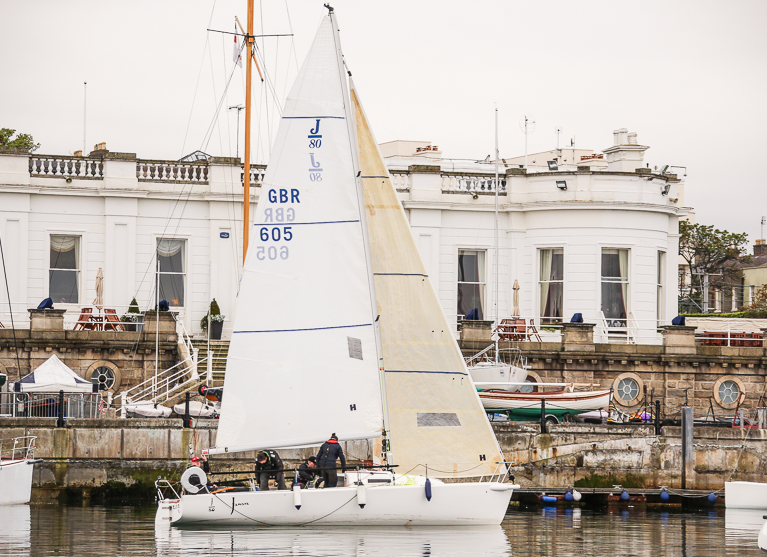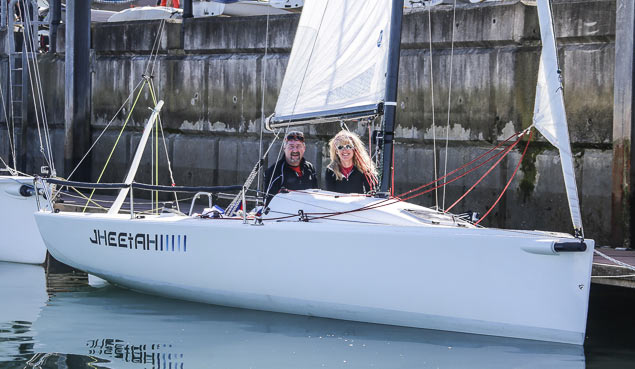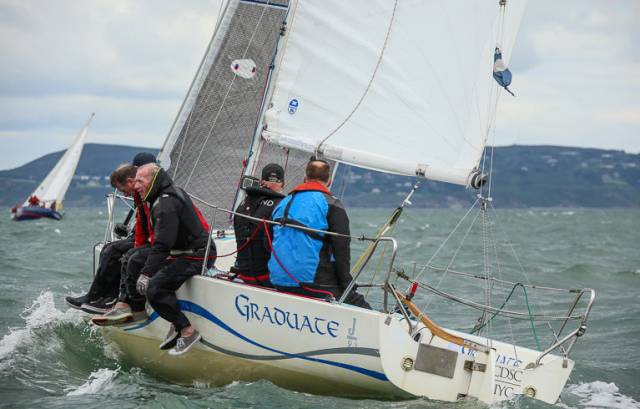2017 looks like it will be a key year for the new mixed sportboats class on Dublin Bay. First promoted on Afloat.ie in late 2015 as a means of catering for a range of boats currently based in Dun Laoghaire. The new class has fostered and encouraged new buyers to source “fun”, affordable day racers.
After a positive start in 2016, DBSC has confirmed that the class will again be competing with the Green Fleet racing in Dublin Bay in 2017 starting this Thursday.
Class Captain Vince Lattimore says it's a 'golden opportunity to grow the class and cement its existence and appeal on the waterfront'.
Signs are extremely encouraging and a number of sportboats have been privately acquired to join in the new sportsboat scene. 'I'm getting twice the fun at half the cost of my cruiser-racer,' one owner told Afloat.ie.
 New arrival, Jambiya, an RIYC–based J80 will compete in DBSC's Mixed Sportsboat class this season
New arrival, Jambiya, an RIYC–based J80 will compete in DBSC's Mixed Sportsboat class this season
15 sportsboats were entered into the pre–Christmas Turkey Shoot this year and this year's DBSC Yearbook lists ten entries from J80s to 1720s in the new class with several other new entries in the wings.
For the first time the mixed sportsboats will have a dedicated start in the Volvo Dun Laoghaire Regatta, provided that 10 entries are recieved.
An upbeat Lattimore says 'we are very confident that, not only will we achieve this threshold but we also firmly believe that the Mixed Sportboats Class has the potential to be the largest class on the water in July for the regatta.
 Andrew Sarratt's new Jheetah, another RIYC based J80, will race in the DBSC mixed sportsboat class
Andrew Sarratt's new Jheetah, another RIYC based J80, will race in the DBSC mixed sportsboat class































































